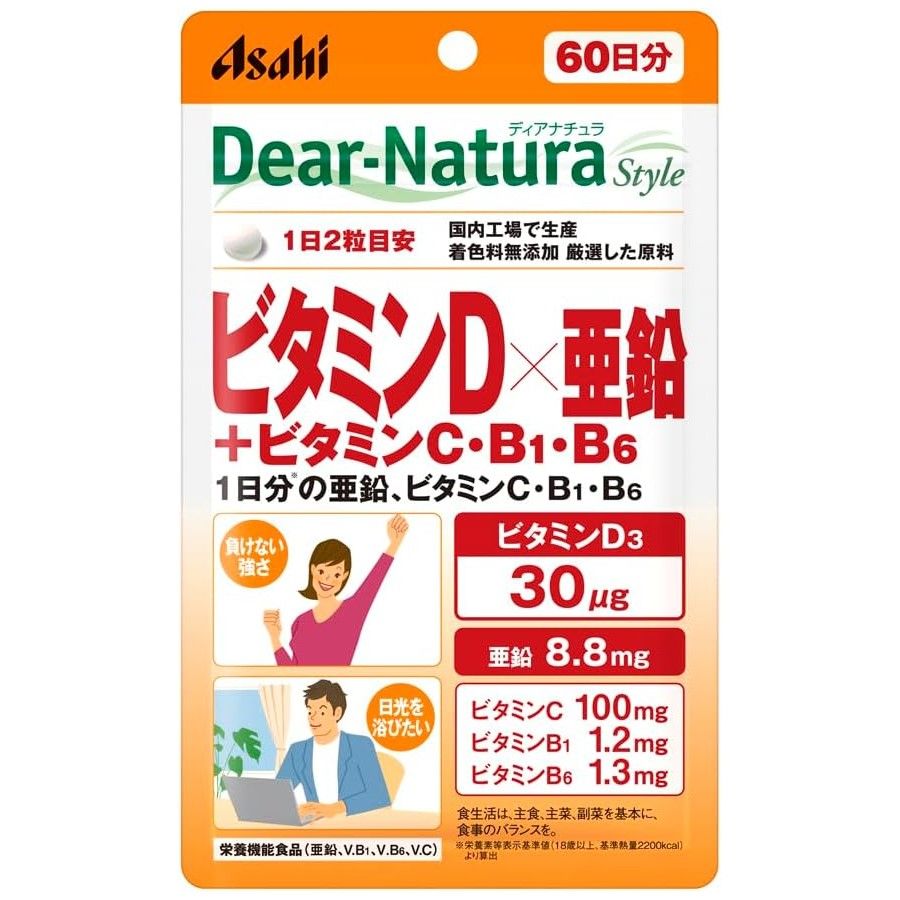■What not to do
(If you do not follow these guidelines, your current symptoms may worsen, and side effects and accidents may occur more easily.)
1. The following people should not take this drug:
(1) People who have had allergic symptoms due to this drug or its ingredients.
(2) People who have had asthma while taking this drug or other cold medicines or antipyretic analgesics.
(3) Children under 15 years of age.
(4) Pregnant women whose due date is within 12 weeks.
(5) Persons receiving treatment or medication for the following illnesses at a medical institution.
Stomach/duodenal ulcer, blood disease, liver disease, kidney disease, heart disease, high blood pressure, people taking zidovudine (Retrovir, etc.)
2. Do not use any of the following medicines while taking this drug:
Other cold medicines, antipyretic analgesics, sedatives, antitussive expectorants, oral medicines containing antihistamines, etc. (oral medicines for rhinitis, motion sickness medicine, allergy medicines, etc.)
3. Do not operate vehicles or machinery after taking this medicine.
(Drowsiness, etc. may occur.)
Four. Do not take this drug if you are breastfeeding, or avoid breastfeeding if you are taking this drug.
Five. Do not drink alcohol before or after taking the drug
6. Do not take for more than 5 days
■To consult
1. The following people should consult a doctor, pharmacist, or registered salesperson before taking the drug.
(1) Persons receiving treatment from a doctor or dentist.
(2) Pregnant women or people who appear to be pregnant.
(3) Elderly people.
(4) People who have had allergic symptoms due to medicines, etc.
(5) People with the following symptoms.
High fever, difficulty urinating
(6) People who have received the following diagnosis or have had the disease.
Stomach/duodenal ulcer, blood disease, liver disease, kidney disease, heart disease, high blood pressure, bronchial asthma, systemic lupus erythematosus, mixed connective tissue disease, people with blood clots (cerebral thrombosis, myocardial infarction, thrombophlebitis), blood clots ulcerative colitis, Crohn's disease, thyroid dysfunction, diabetes, glaucoma, respiratory dysfunction, obstructive sleep apnea syndrome, obesity.
2. If the following symptoms appear after taking the drug, it may be a side effect, so stop taking the drug immediately and consult your doctor, pharmacist, or registered salesperson with the explanatory document.
Related area: Symptoms
Skin: Rash/redness, itching, edema, and bruising.
Gastrointestinal: Nausea/vomiting, loss of appetite, stomach discomfort, stomach pain, stomatitis, heartburn, heaviness in the stomach, gastrointestinal bleeding, abdominal pain, diarrhea, bloody stool, stomach/abdominal bloating.
Neuropsychiatric system: dizziness, numbness, insomnia, depressed mood
Cardiovascular: palpitations
Respiratory: shortness of breath
Urinary system: difficulty urinating
Other: Blurred vision, ringing in the ears, swelling, nosebleeds, bleeding gums, difficulty in stopping bleeding, bleeding, back pain, excessive drop in body temperature, feeling tired
In rare cases, the following serious symptoms may occur: In that case, seek medical treatment immediately.
Symptom name: Symptom
Shock (anaphylaxis): Immediately after taking the drug, symptoms such as itchy skin, hives, hoarseness, sneezing, itchy throat, difficulty breathing, palpitations, and clouded consciousness may occur.
Blood disorders: Bruising easily, sudden high fever, chills, sore throat, easy bleeding (bleeding gums, nosebleeds, etc.), difficulty stopping bleeding, etc. may occur.
Digestive disorders: Black stools, hematemesis, bloody stools, mucus-bloody stools (loose stools mixed with blood, mucus, and pus), etc. may appear.
Oculomucocutaneous syndrome (Stevens-Johnson syndrome): High fever, bloodshot eyes, mucus, sore lips, sore throat, and widespread skin rash/redness that persist or worsen rapidly.
Toxic epidermal necrolysis: High fever, bloodshot eyes, mucus, sore lips, sore throat, and widespread rash/redness on the skin persist or worsen rapidly.
Liver dysfunction: Fever, itching, rash, jaundice (yellowing of the skin and whites of the eyes), brown urine, general malaise, loss of appetite, etc. may appear.
Kidney disorder: Fever, rash, decreased urine output, general swelling, general malaise, joint pain (pain in the joints), diarrhea, etc. may appear.
Aseptic meningitis: Severe headache accompanied by stiffness in the neck, fever, nausea, and vomiting appear. (Such symptoms are particularly frequently reported in people receiving treatment for systemic lupus erythematosus or mixed connective tissue disease.)
Interstitial pneumonia: When you climb stairs or push yourself too hard, you may experience shortness of breath, difficulty breathing, dry cough, fever, etc., which may appear suddenly or persist.
Asthma: wheezing, whistling, and difficulty breathing when breathing.
Aplastic anemia: Bruises, nosebleeds, bleeding gums, fever, pale skin and mucous membranes, fatigue, palpitations, shortness of breath, feeling unwell and dizzy, blood in the urine, etc. may appear.
Agranulocytosis: Sudden onset of high fever, chills, sore throat, etc.
Respiratory depression: Shortness of breath, difficulty breathing, etc. appear.
3. If you experience symptoms such as an excessive drop in body temperature, weakness (lack of strength), or cold limbs (cold hands and feet) after taking the drug, immediately stop taking the drug and take the explanatory document to your doctor, pharmacist, or registered salesperson. to consult with
Four. The following symptoms may appear after taking this medicine. If these symptoms persist or worsen, stop taking this medicine and consult your doctor, pharmacist, or registered salesperson with this document.
Constipation, dry mouth, sleepiness
5. If your symptoms do not improve even after taking 5 to 6 times, stop taking the drug and consult your doctor, pharmacist, or registered salesperson with the explanatory document.
(Especially when the fever lasts for more than 3 days or when the fever occurs repeatedly)
![[Designated 2nd-Class OTC Drug] Kurashirhythm Medical Sesion High ProEX 36 tablets](https://image.dokodemo.world/catalog-skus/9050966/394a73743ca7df74f57f8d309d5e93bc.png?d=450x0)
![[Designated 2nd-Class OTC Drug] Kurashirhythm Medical Sesion High ProEX 36 tablets](https://image.dokodemo.world/catalog-skus/9050966/394a73743ca7df74f57f8d309d5e93bc.png?d=100x0)
![[Third-class drug] Zenkoku Isan (sachets) 16 packets](https://image.dokodemo.world/catalog-skus/9064108/9a8f13a1d24bebebca7c41deeefdf87d.jpg?d=0x0)
![[Class 2 OTC drug] Marine Eye ALG EX 15ml](https://image.dokodemo.world/catalog-skus/9064109/60f4b9597ea6488025b6c0a445a5dec9.jpg?d=0x0)
![[Designated Category 2 Drug] BUFALIN PREMIUM 20 tablets](https://image.dokodemo.world/catalog-skus/9064103/88356aec9d766c79948c0a25913478b2.jpg?d=0x0)
![[Designated Category 2 Drug] BAFULIN PREMIUM 40 tablets](https://image.dokodemo.world/catalog-skus/9064104/841b813d70c6da563d8a5754f24f2841.jpg?d=0x0)
![[Class 3 OTC drug] Hythiol C Plus EX 240 tablets](https://image.dokodemo.world/catalog-skus/9064101/3f75c6e11af6c2214ef3e6d107b3fd3b.jpg?d=0x0)


![[Designated Class 2 Drug] Una Kowa Ace Premium G 15g](https://image.dokodemo.world/catalog-skus/9063904/d0142cb68cfee456216e9dd71fa96f04.jpg?d=0x0)
![[Designated Class 2 Drug] Una Kowa Ace Premium L 30mL](https://image.dokodemo.world/catalog-skus/9063903/a3cee89805d98877db190a16aec32008.jpg?d=0x0)
![[Designated Class 2 Drug] Butenaloc L Cream EX 26g](https://image.dokodemo.world/catalog-skus/9063899/f910973e1c8c9e337467da8e7d9cfad3.jpg?d=0x0)
![[Category 3 drugs] Eisai Chocola BB Children's Syrup 30mL (2 bottles x 5 pieces)](https://image.dokodemo.world/catalog-skus/9063596/bcf73a891f26bc7ff542ee0fdee60145.jpg?d=0x0)
![[Class 2 drugs] Kotaro Kampo Pharmaceutical Sawataro Extract Fine Granules G "Kotaro" 18 packets](https://image.dokodemo.world/catalog-skus/9063597/e4105b156a86ae2bf3d22b50301aeb20.jpg?d=0x0)
![[Class 2 drugs] Sanwa Herbal Medicine [161] Sanwa Keikurenkeito Extract Fine Granules 90 sachets](https://image.dokodemo.world/catalog-skus/9063595/c4b11ba52572a591f9bb6f9809f1ede3.jpg?d=0x0)
![[Class 2 drug] Mitsubishi Tanabe Pharma Cerequinone S (Can only be used by those diagnosed with irritable bowel syndrome) 20 tablets](https://image.dokodemo.world/catalog-skus/9063594/fed85ed15a2abd8be01718117ae859aa.jpg?d=0x0)
![[Class 2 drugs] Kracie Pharmaceutical Kampo Kakkonto Extract EX Tablets 96 tablets](https://image.dokodemo.world/catalog-skus/9063593/f94fb5767a0373b008a7fd72c73a9440.jpg?d=0x0)
![[Category 3 drug] Yamamoto Chinese Herbal Medicine Yamamoto's Semburi Tablets S 90 tablets](https://image.dokodemo.world/catalog-skus/9063592/29038a525302374ea6dc9e8d2e62a9dd.jpg?d=0x0)
![[Class 2 drugs] Wakamoto Pharmaceutical Allesifence 5mL (x2 bottles)](https://image.dokodemo.world/catalog-skus/9063589/858a258d27622b817730808b51c549bf.jpg?d=0x0)
![[Category 2 drugs] Kracie Pharmaceutical [27] Kracie Chinese herbal medicine Keishika Ryukotsu Okaito extract granules 24 packets](https://image.dokodemo.world/catalog-skus/9063588/6fab5fd154b0d39b07603f1c33b5d255.jpg?d=0x0)
![[Class 2 drugs] Sato Pharmaceutical Picolax 200 tablets](https://image.dokodemo.world/catalog-skus/9063585/d770f6438c145821988a55ad9a20974e.jpg?d=0x0)
![[Category 2 drugs] Hachime Pharmaceutical Kogiku Myokengan 360 pills](https://image.dokodemo.world/catalog-skus/9063587/b9ce8869bb85ed7db1d1027318994cf9.jpg?d=0x0)
![[Class 2 drugs] Towa Pharmaceutical Korea After FB Pap 32 sheets 10cm x 14cm.](https://image.dokodemo.world/catalog-skus/9063591/b5599f441994b74b2585264d0973f615.jpg?d=0x0)
![[Class 2 drugs] JPS Pharmaceutical Shinno Bakumondoto extract tablets 60 tablets](https://image.dokodemo.world/catalog-skus/9063590/1f61508f617669c60eebb91fbbce6bef.jpg?d=0x0)
![[Class 2 drugs] Taisho Pharmaceutical Sempaa Kids Drink 20mL x 2 bottles](https://image.dokodemo.world/catalog-skus/9063578/31235fe56202c93cebe9bdb18d2250c6.jpg?d=0x0)
![[Category 3 drugs] Teikoku Seiyaku Winpa School 30 sheets](https://image.dokodemo.world/catalog-skus/9063579/b7f8445cc8e457e7b2b2385ca4bab274.jpg?d=0x0)